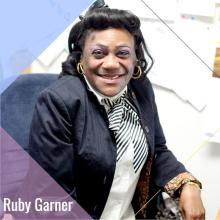best practices

IT IS EASY to feel overwhelmed or paralyzed by the systemic nature of how money and development works, or—if you are a gentrifier yourself—to feel guilty to the point of inaction. While each neighborhood and context may differ, individual Christians and congregations can live into beliefs and practices that help address the crisis of mass displacement in the U.S.
1. Be Your Neighbor’s Keeper
Pastor Mark Strong believes the best thing Christians in a gentrifying city can do is to hear and understand the stories of their neighbors. In Portland, he says, most of the African-American churches have suffered in silence. White Christians have not been aware of the crisis taking place next door to them. Intentional relationships and active listening can begin to remedy this.
Finding and investing in ongoing relationships with people most at risk of displacement is vital. There are myriad ways to do this: living in lower income apartments, investing in the public schools, seeking out community organizers and grassroots nonprofits—and learning from local churches with long-term roots in the community.
2. Know the Plan
Tim Keller advises people moving into a neighborhood at risk of gentrifying to see if a plan is in place to minimize displacement, and if not, to ask how one could be created. This plan—put together by the local government, nonprofit agencies, developers, and businesses, along with churches and community leaders—is vital to understanding both the issues specific to the neighborhood and ways to hold all accountable. Without a plan in place to shield properties and families from the market, middle-class and wealthier individuals will be directly contributing to gentrification.

Ruby Garner is a health educator for Health People, an organization in New York’s South Bronx that provides services to people in need. She is an adviser to the AIDS Institute of the New York State Department of Health and partners with her church, First Corinthian Baptist in Manhattan, to provide medical care to its lower-income neighbors.
Website: healthpeople.org
1. What inspired you to partner with your church? Being able to give to my community, which has a lot of disparities, and deliver information and resources to people who need them is my passion. Working at Health People, I do presentations on behalf of the state of New York on diabetes prevention, health care for women, HIV, how to establish and maintain healthy relationships, and other topics. It made sense to take what I already do and bring it to my church.
IN THE PAST, programs like Menergy were often described as “batterer intervention.” Today we prefer to situate battering behavior within the broader definition of abuse, and work with our participants to change abusive behaviors, big and small.
In 30 years of work with men and women who act abusively toward an intimate partner, Menergy has had thousands of people of faith go through the program. Sometimes their faith community helped them get to our door; other times they came in spite of messages they received at church.
A faith community that seeks to encourage change for abusive members can have a dramatic impact. Here are a few suggestions for how to start:
1. Embrace the secular programs in your community. “Groupthink” often supports abusive beliefs. Don’t try to keep it in-house. In Menergy’s counseling groups, we see that diversity in life experience, culture and ethnicity, economic class, and religious belief aids group members in challenging each other’s ideas.
2. Learn more about domestic abuse. Contact the National Coalition Against Domestic Violence (1-800-799-SAFE) to get a list of local victim-advocacy programs. Send several members of your church to a training for people interested in learning more. Effective support that allows a survivor to grow stronger and safer can often be the fastest path toward holding the abusive partner accountable.